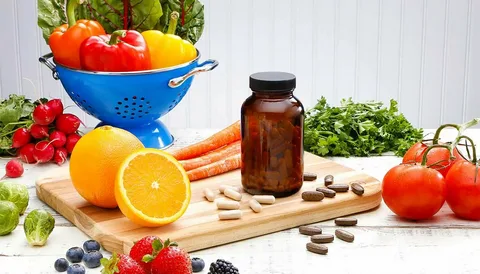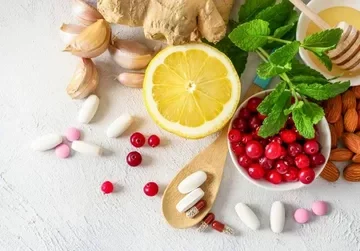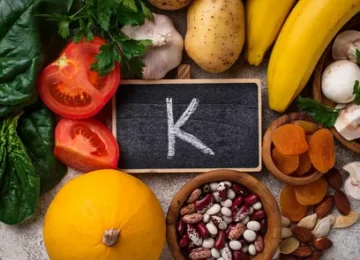Vitamin C, also known as ascorbic acid, is a crucial nutrient for overall health. It plays a significant role in immune function, collagen synthesis, wound healing, and the maintenance of cartilage, bones, and teeth. Since our bodies cannot produce or store vitamin C, it is essential to obtain it through our diet. This guide will explore various ways to increase your vitamin C intake, the benefits of this essential nutrient, and practical tips to ensure you get enough in your daily diet.
Understanding Vitamin C
What is Vitamin C?
Vitamin C is a water-soluble vitamin that is vital for the growth, development, and repair of all body tissues. It is involved in many body functions, including the formation of collagen, absorption of iron, the immune system, wound healing, and the maintenance of cartilage, bones, and teeth.
Why is Vitamin C Important?
Vitamin C is an antioxidant, helping to protect cells from the damage caused by free radicals. Free radicals are compounds formed when our bodies convert the food we eat into energy. People are also exposed to free radicals in the environment from cigarette smoke, air pollution, and ultraviolet light from the sun.
Dietary Sources of Vitamin C
Fruits Rich in Vitamin C
Incorporating a variety of fruits into your diet can significantly boost your vitamin C intake. Here are some of the best sources:
- Citrus Fruits: Oranges, grapefruits, lemons, and limes are well-known for their high vitamin C content.
- Berries: Strawberries, raspberries, blueberries, and blackberries are excellent sources of vitamin C.
- Tropical Fruits: Pineapples, mangoes, papayas, and guavas are rich in vitamin C and provide a sweet, nutritious boost.
- Other Fruits: Kiwifruit, melons (like cantaloupe and honeydew), and tomatoes are also good sources.
Vegetables Rich in Vitamin C
Vegetables are another excellent source of vitamin C. Some of the top choices include:
- Leafy Greens: Spinach, kale, and Swiss chard not only provide vitamin C but also offer a wealth of other nutrients.
- Cruciferous Vegetables: Broccoli, Brussels sprouts, cauliflower, and cabbage are packed with vitamin C.
- Peppers: Red, yellow, and green bell peppers are among the richest sources of vitamin C.
- Other Vegetables: Potatoes, tomatoes, and peas are also valuable contributors to your daily vitamin C intake.
Incorporating Vitamin C into Your Meals
Breakfast Ideas
Starting your day with a vitamin C-rich breakfast can set a healthy tone for the rest of the day. Consider these options:
- Smoothies: Blend a mix of citrus fruits, berries, and leafy greens for a delicious and nutrient-packed smoothie.
- Fruit Salad: Combine a variety of vitamin C-rich fruits such as strawberries, oranges, and kiwi for a refreshing breakfast.
- Fortified Cereals: Some breakfast cereals are fortified with vitamin C, making them a convenient option.
Lunch and Dinner Ideas
Incorporating vitamin C into your main meals can be both delicious and nutritious. Here are some ideas:
- Salads: Make salads with a base of leafy greens and add bell peppers, tomatoes, and fruits like oranges or strawberries.
- Stir-fries: Use broccoli, bell peppers, and leafy greens in your stir-fries to increase your vitamin C intake.
- Soups and Stews: Add vegetables such as tomatoes, potatoes, and spinach to your soups and stews for a nutrient boost.
Snacks
Healthy snacks can help you meet your daily vitamin C requirements:
- Fresh Fruit: Keep fresh fruit like oranges, strawberries, and kiwi on hand for a quick and easy snack.
- Veggie Sticks: Snack on bell pepper slices, cherry tomatoes, and broccoli florets with a healthy dip like hummus.
- Dried Fruit: While fresh fruit is preferable, dried fruits like apricots can also provide some vitamin C.
Cooking Tips to Preserve Vitamin C
Vitamin C can be easily destroyed by heat, light, and air. Here are some tips to preserve its content in your foods:
- Minimize Cooking Time: Cook vegetables for a shorter period to retain more vitamin C.
- Use Minimal Water: Since vitamin C is water-soluble, use less water when cooking to prevent it from leaching out.
- Eat Raw When Possible: Consuming raw fruits and vegetables ensures you get the maximum amount of vitamin C.
Supplements
While it is always best to get your nutrients from food, supplements can be a helpful addition if you are unable to meet your vitamin C needs through diet alone. Consult with a healthcare provider to determine the right dosage for your needs.
The Benefits of Adequate Vitamin C Intake
Boosts Immune Function
Vitamin C is known for its role in supporting a healthy immune system. It helps stimulate the production and function of white blood cells, which are essential for fighting infections.
Promotes Healthy Skin
Vitamin C is vital for collagen synthesis, which is crucial for maintaining skin elasticity and preventing wrinkles. It also helps protect the skin from damage caused by UV exposure.
Aids in Iron Absorption
Vitamin C enhances the absorption of non-heme iron (the type of iron found in plant-based foods), helping to prevent iron deficiency anemia.
Supports Cardiovascular Health
Antioxidants like vitamin C help protect the cardiovascular system by preventing oxidative damage to cells and tissues.
Reduces Risk of Chronic Diseases
A diet rich in vitamin C has been linked to a lower risk of chronic diseases, such as heart disease, hypertension, and certain cancers, due to its antioxidant properties.
FAQs
How much vitamin C do I need daily?
The recommended daily intake of vitamin C varies by age and gender. For adults, the daily recommended amount is 90 mg for men and 75 mg for women. Pregnant and breastfeeding women may require higher amounts.
Can I get too much vitamin C?
While vitamin C is water-soluble and excess amounts are typically excreted, consuming very high doses (more than 2,000 mg per day) can cause side effects such as stomach cramps, diarrhea, and nausea.
Are there any foods that inhibit vitamin C absorption?
Foods high in tannins, oxalates, and phytates, such as tea, coffee, and some legumes, can inhibit the absorption of vitamin C. However, the impact is generally minimal if you consume a balanced diet.
Does cooking destroy vitamin C?
Yes, cooking can reduce the vitamin C content of foods, especially with prolonged heat exposure and large amounts of water. To preserve vitamin C, consider steaming or microwaving vegetables instead of boiling.
Can vitamin C help with colds?
Vitamin C is not a cure for the common cold, but it may help reduce the severity and duration of symptoms if taken regularly as part of a balanced diet.
What are some signs of vitamin C deficiency?
Signs of vitamin C deficiency include fatigue, weakness, gum disease, and easy bruising. Severe deficiency can lead to scurvy, which is characterized by anemia, bleeding gums, and skin issues.
Is it better to get vitamin C from food or supplements?
It is generally better to get vitamin C from food sources, as they provide additional nutrients and antioxidants. Supplements can be used if dietary intake is insufficient.
Can vitamin C improve skin health?
Yes, vitamin C is essential for collagen production and acts as an antioxidant, helping to maintain skin health and reduce the signs of aging.
Does vitamin C interact with medications?
Vitamin C can interact with certain medications, such as chemotherapy drugs and statins. Always consult with a healthcare provider before starting any new supplement.
Can children take vitamin C supplements?
Yes, children can take vitamin C supplements, but the dosage should be appropriate for their age. It is best to consult with a pediatrician to determine the correct amount.
Conclusion
Ensuring adequate vitamin C intake is crucial for maintaining overall health and preventing various diseases. By incorporating a variety of fruits and vegetables into your diet, you can easily meet your daily vitamin C needs. Remember to use cooking methods that preserve vitamin C and consider supplements if necessary. With these strategies, you can enjoy the numerous benefits of this essential nutrient and support your overall well-being.
- Profhilo Treatment Near Okewood, Surrey - May 31, 2025
- The Emotional Journey Of Being In A Pansexual Relationship - May 30, 2025
- Light Eyes Ultra – Dark Circles Treatment Near Holmbury St Mary, Surrey - May 30, 2025



